Looking for a book recommendation? Look no further than this display near the Research Help and Information Desk at Ellis Library.
Check out fiction, poetry, and nonfiction that merited four or five stars on Roxane Gay’s Goodreads account.
Your source for what's new at Mizzou Libraries
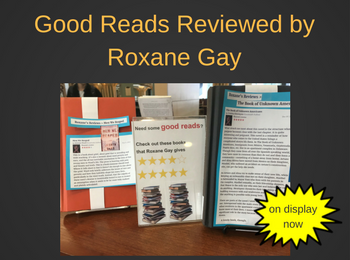
Looking for a book recommendation? Look no further than this display near the Research Help and Information Desk at Ellis Library.
Check out fiction, poetry, and nonfiction that merited four or five stars on Roxane Gay’s Goodreads account.
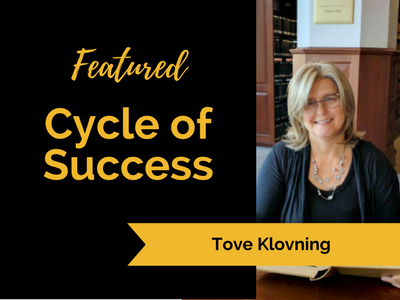
Tove Klovning, who serves as US, MO, and EU Government Documents Depository Coordinator as well as Foreign/Comparative/International Law Librarian & Lecturer in Law at Washington University in St. Louis, often interacts with researchers seeking access to both historical and current government information. She explains, “Preserving government information and making it accessible for both current researchers and future generations is an important task for depository libraries.” In her work at a sub-regional and Federal depository library, she has benefited from the direction and guidance of Marie Concannon, Missouri’s regional coordinator for the Federal Depository Library Program and Head of Government Information and Data Archives here at Mizzou Libraries.
Tove says she “honestly could not have wished for a more competent Regional Depository Coordinator. Marie is always there to answer any questions we may have and is always willing to offer training, updates, and continuing education to both new and established depository librarians on a regular basis.” For example, when Tove needed input regarding weeding the local collection, Marie consulted with her.
Marie has also worked to help libraries free up much-needed space while retaining government resources in the region: “Thanks to her great work with area depository librarians, an Intrastate Regional agreement was put into place in 2012.” This model encouraged depository libraries to stay in the program, Tove explains, since sharing resources helps each individual library better cope with the perpetual struggle of space issues. Marie met face-to-face with about a dozen depository libraries in St. Louis to facilitate the process of drafting this agreement.

In terms of training and support for depository librarians in the region, Tove has found that Marie plays a vital role as educator. A frequently consulted resource is a guide for Missouri FDLP members which helps librarians navigate the federal depository system. Marie built and maintains this guide to facilitate online access to crucial information for these librarians and help keep them informed of training opportunities and conferences.
Organizing workshops and conferences is another way Marie makes sure librarians can get up-to-date training on government information so that they can help patrons access the data they need. In November, Missouri state government employees and both academic and public library employees attended the Missouri State Government Information Conference, which she co-organized. The 2017 theme was “Sunshine and Missouri’s Digital Future,” taking its name from the state Sunshine Law. Marie says the conference’s purpose is “to bridge the gap between libraries and government, and help lay groundwork for closer partnership on projects involving government information accessibility.”
For all of these reasons and more, as Tove says, “We are very fortunate to have Marie as our Federal and State Regional Coordinator.”
Cycle of Success is the idea that libraries, faculty, and students are linked; for one to truly succeed, we must all succeed. The path to success is formed by the connections between University of Missouri Libraries and faculty members, between faculty members and students, and between students and the libraries that serve them. More than just success, this is also a connection of mutual respect, support, and commitment to forward-thinking research.
Although the Cycle of Success typically focuses on the relationships among the Libraries, faculty, and students, the Libraries also contribute to the success of all the communities Mizzou serves. The Libraries are an integral part of Mizzou’s mission “to provide all Missourians the benefits of a world-class research university.”
If you would like to submit your own success story about how the libraries have helped your research and/or work, please use the Cycle of Success form.
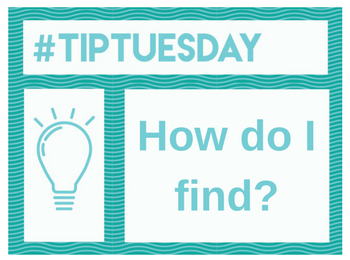
Looking for something specific? Try the library’s How Do I Find? page available here or on the library home page under Looking For.
This page will tell you how to find different things in the library from career information to children’s books. Whether you’re looking for data sets or DVDs, check the How Do I Find? page to get a quick answer.
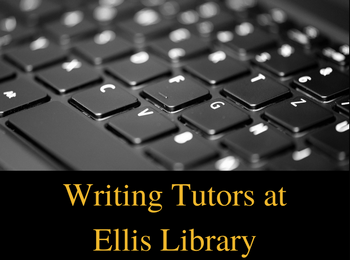
Tutors from the Writing Center offer one-on-one writing support in Ellis Library. All Mizzou students can take advantage of this service. Tutors can help with all stages of the writing process: brainstorming, revising, polishing a final draft. They are familiar with a variety of writing styles and formats.
Writing Tutors’ Schedule
Ellis Library, Room 151-E
Spring 2018
Tuesday, January 16 through Finals Week
(no tutors during Spring Break)
Sunday 4:00 – 9:00 pm
Monday 11:00 am – 9:00 pm
Tuesday 11:00 am – 9:00 pm
Wednesday 11:00 am – 9:00 pm
Thursday 11:00 am – 9:00 pm
Sign up for appointments on the sign-up sheet which will be posted on the door to Room 151-E at the start of tutoring hours that day. Appointments are for fifty minutes.
Visit the Writing Center’s website to find out more about the writing assistance they offer.
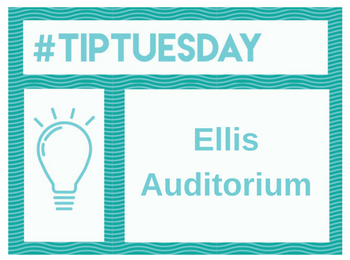
Do you have a class located in Ellis Auditorium (room 21)? Are you having trouble finding how to get there?
Ellis Auditorium is located on the west side of Ellis Library on the ground floor. To enter the auditorium, use the exterior door between the west entrance and Lowry Mall. A sign marks the location.
If you’re having trouble finding the entrance, visit the Research Help and Information Desk for assistance.
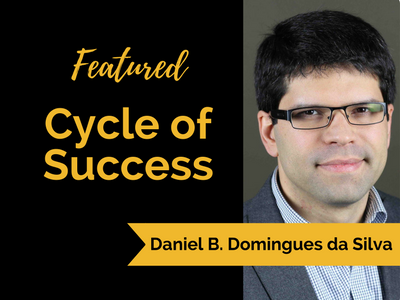
Daniel B. Domingues da Silva, former Assistant Professor of History at Mizzou, won the Center for Research Libraries‘ 2017 Award for Teaching, part of their annual Primary Source Awards. Rachel Brekhus, Humanities Librarian, nominated him for his creative use of primary sources in his Writing Intensive course Fighting the Atlantic Slave Trade.
Now an assistant professor of African history at Rice University, Daniel held the same position at Mizzou from 2012 to 2017, teaching courses on the history of early and modern Africa. His research focuses on the African slave trade, especially from West Central Africa, and he has participated in several digital humanities projects such as Voyages: The Trans-Atlantic Slave Trade Database and Visualizing Abolition: A Digital History of the Suppression of the African Slave Trade. Visualizing Abolition was developed here at Mizzou.
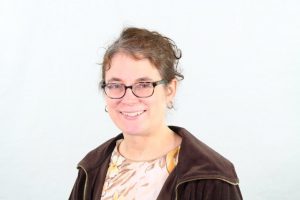
Daniel credits Rachel and other Mizzou librarians with playing key roles in his research and teaching. “They not only helped me secure important primary and secondary sources for my research,” he says, “but they also created study guides for my students, workshops on how to conduct research, and trained students in operating related equipment and computer softwares. They also reviewed applications and nominated students and myself to internal and external research and teaching awards.”
Humanities librarian Anne Barker provided students with valuable insights into copyright issues and the use of images. Digital services librarian Felicity Dykas trained students on scanning techniques and image specifications. In the spring of 2017, Ellis Library hosted an exhibit about the making of the Visualizing Abolition project, providing students an opportunity to showcase their work.
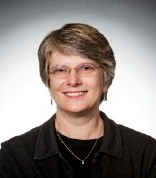
Prior to the CRL Award for Teaching, Daniel had won teaching awards within the University of Missouri campus community and considers those awards “an important way of rewarding faculty for their teaching achievements” and letting faculty know they are on the right track. However, he says “the CRL award was something different. As a global consortium of research libraries, it meant that I was not only a good teacher among my peers at Mizzou, but that my teaching skills were also appreciated among a much larger community of scholars.”
Cycle of Success is the idea that libraries, faculty, and students are linked; for one to truly succeed, we must all succeed. The path to success is formed by the connections between University of Missouri Libraries and faculty members, between faculty members and students, and between students and the libraries that serve them. More than just success, this is also a connection of mutual respect, support, and commitment to forward-thinking research.
If you would like to submit your own success story about how the libraries have helped your research and/or work, please use the Cycle of Success form.
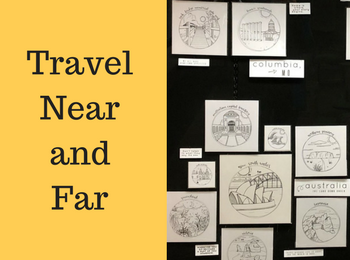
Check out the “Travel Near and Far” exhibit on display in the Ellis Library Colonnade through the end of January.
Katie Barthel’s DoodleStation began as a series of doodles created while attending professional training sessions as a CPA. Doodling was a way for her to express her creativity. Her first drawings were inspired by her trip to Australia, and after positive responses and encouragement from friends, she decided to turn those drawings into a business.
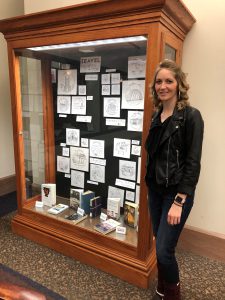
DoodleStation’s slogan is “Doodling your life, your experiences, your travels,” and Katie loves having the opportunity to brighten somebody’s day with one of her doodles. “Travel Near and Far” features landmarks from some of her favorite places–Columbia, Kansas City, and Australia–as well doodles meant to inspire viewers to explore more in their own lives.
Katie asks, “What is life if not one grand adventure?”
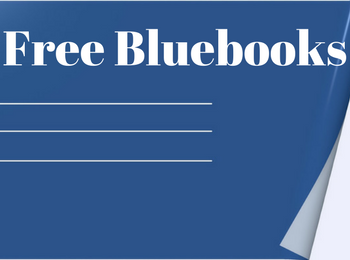
Need bluebooks for your finals? The Mizzou Store is giving away free bluebooks to students.
The vending machine by the North Entrance of Ellis Library has free bluebooks as well. Just press the number for the item, and the vending machine will drop one without any money needed.
If the vending machine runs out of bluebooks, head over to the Mizzou Store and ask for them. All other vending machines on campus operated by the Mizzou Store have been programmed to distribute free bluebooks as well.
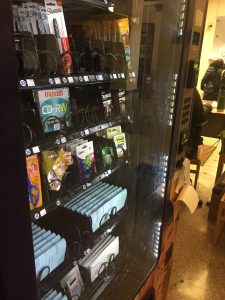
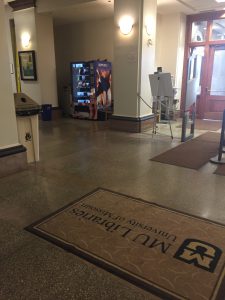
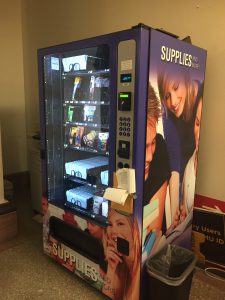
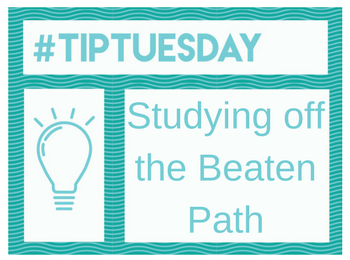
Studying off the Beaten Path
Let us study the libraries
As one prepares for exams,
And while the west stacks may seem scary,
Among the books is a great place to cram.
The Bookmark café may have it all:
Coffee, cookies, and outlets, to boot
While the trees shed their leaves in fall
The best study spaces have been hoarded like loot!
To ace your projects, papers, and tests
Seek study spaces off the beaten path
Whether it is chaos or silence you like best,
Let the libraries be your guide, compass, and map.
If alone or in mobs, find your refuge via Places to Study
Grab a desk in the stacks or reserve room 3G62 and bring all your buddies!

Trained therapy dogs will be in Ellis Library once again during finals week. Visit the dogs on the first floor of Ellis Library during the following times:
Monday, December 11th: 7-9pm
Tuesday, December 12th: 7-9pm
Wednesday, December 13th:7-9pm
Also check out the Zen coloring tables on the first floor, or if you need a quiet space to work on your final papers and projects, Room 213 (Electronic Classroom II) is open 24/7 during finals as a quiet study space with computers.
Thanks to Ann of Ann Gafke’s Teacher’s Pet for coordinating all the dogs and owners who help us de-stress during finals!